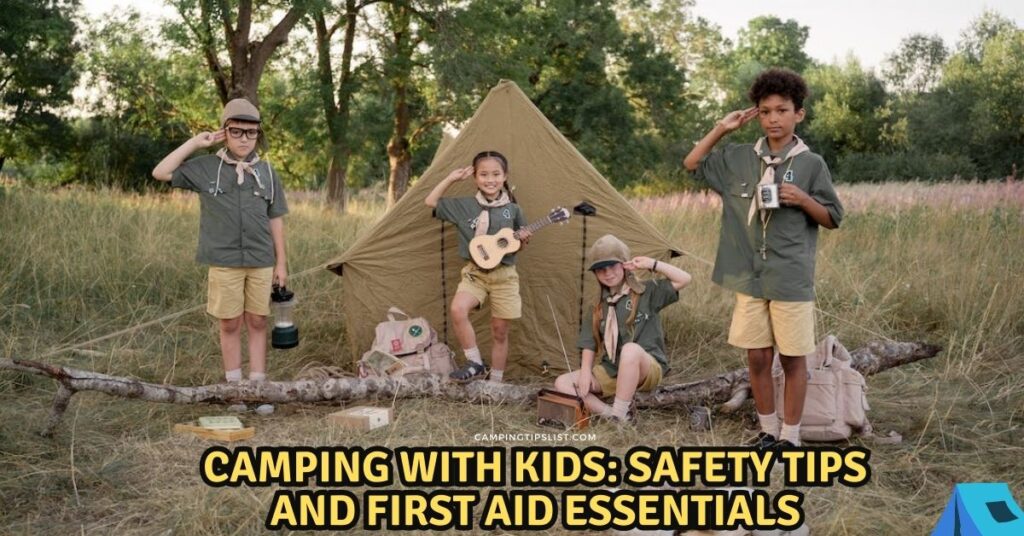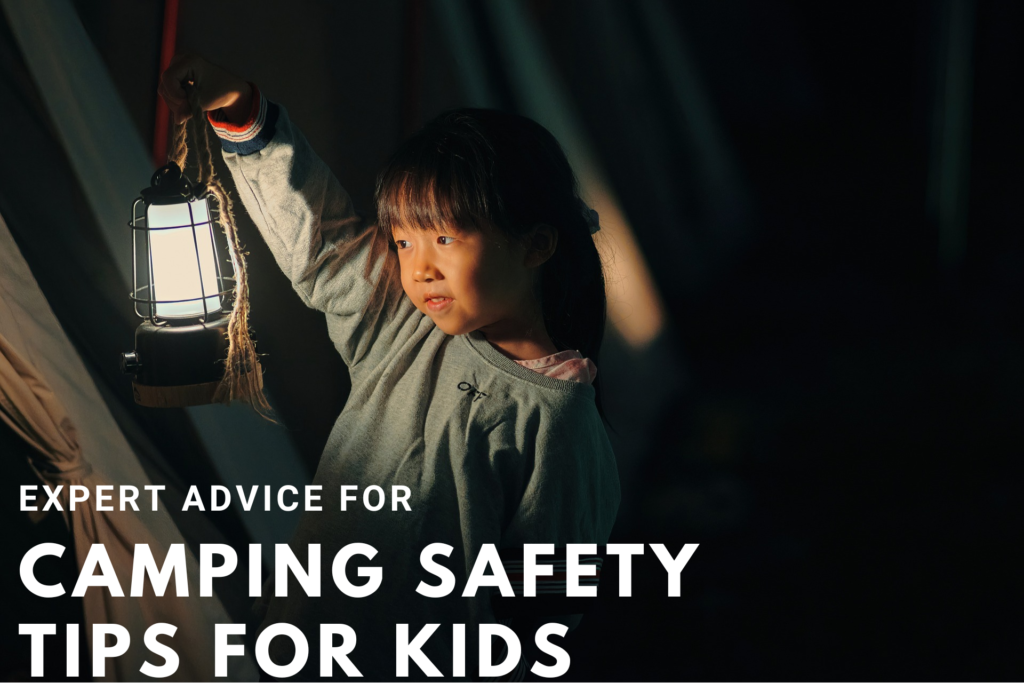Families get an amazing chance to unwind, appreciate nature, and share an adventure when they go camping. Beyond just being pleasurable, spending time in nature has been linked to a number of health advantages, including a lower risk of type II diabetes and higher self-reported well health, according to an analysis of almost 150 research published in Environmental Research.
Being a novice camper, organizing a family camping vacation may seem overwhelming. The appeal of camping, though, is that there are several options that may be used to accommodate any family’s wants or preferences.
Here are some pointers to help you get out on the right foot.
Advice for New Campers with kids camping
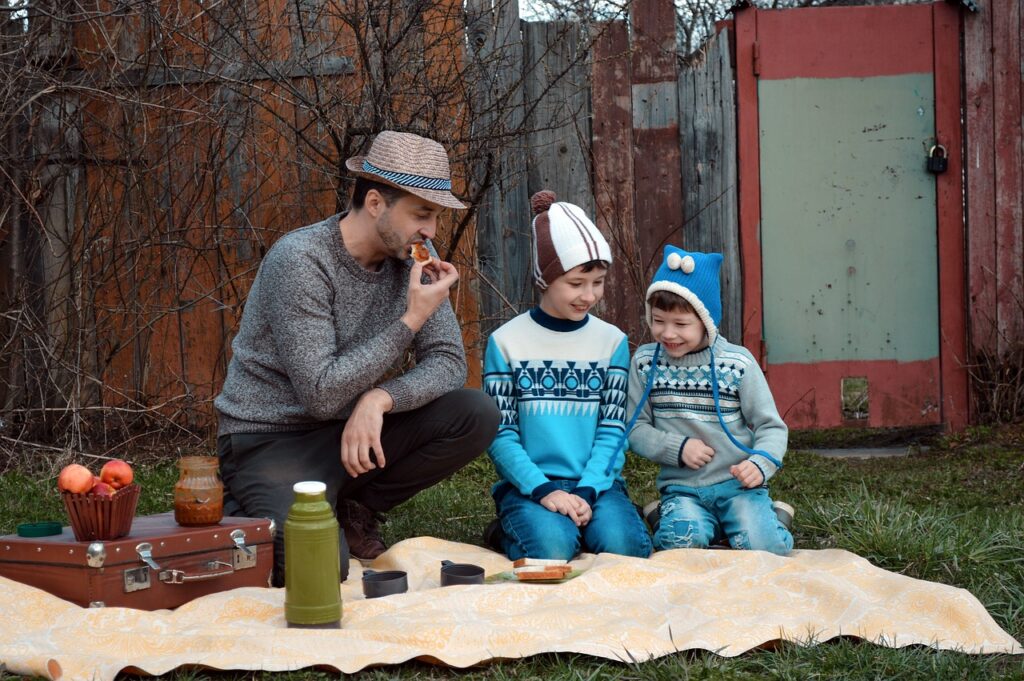
Start off modestly and nearby. Starting your camping adventure in your backyard is quite acceptable. It’s a terrific approach to get young children acclimated to sleeping outside while still having access to facilities. If you DNF (did not complete), it simply means that no harm was done and no money was lost. When you’re ready to step it up, seek for a nearby campground and make arrangements for just one night away. Consider camping with a long-term perspective; with each attempt, you’ll improve a bit.
Camping is not all or nothing. Some people think of camping as totally roughing it in nature without access to any
Rent, purchase, or borrow secondhand equipment.
Without understanding which camping equipment your family would genuinely like using, there is little use in making an investment. Additionally, you may search social media marketplace ads for gently used camping equipment.
creature comforts, but that may not appeal to you. Camping can be any blend of outdoor adventure and modern travel that you desire, whether that’s a rugged tent, RV, or cabin.
Camping With Kids: A Checklist of Essentials
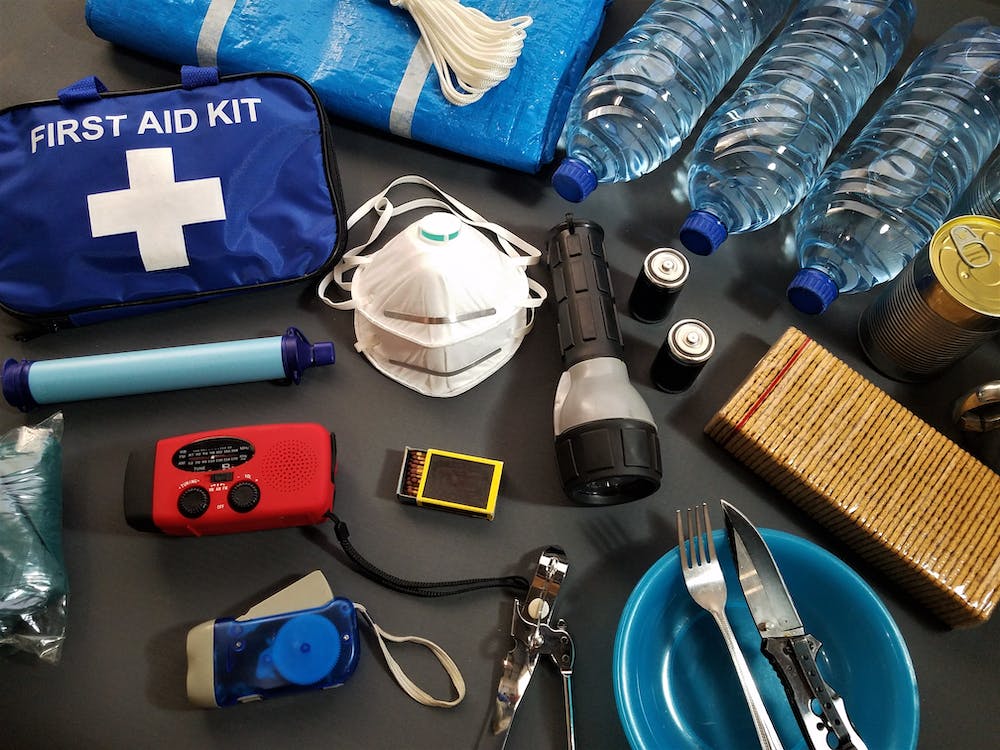
A parent’s biggest dread is to go for a camping vacation only to realize they have neglected to pack anything crucial. Don’t be afraid! To ensure a successful camping vacation with kids, we have put together a list of necessary camping supplies.
Campsite Gear
Portable sink .When not in use, these silicone sinks conveniently fold up. It may be used to store water for any work and to do dishes.
Several bags. Bring paper or recyclable plastic bags to conveniently collect garbage and guarantee that campsites are left in the same condition as when you came, if not better.
A very good coffee maker. No parent should embark on a family camping trip without this important detail worked out. There are many good options for making coffee outdoors, so find what works for your setup and practice using it at home first.
Tent fan. Multiple people sleeping in tight quarters can increase the temperature quickly. A tent fan or personal fans can help keep everyone comfortable.
Rain fly or tarps. Prepare for rain even if it’s not in the forecast. A rain fly often comes with your tent and enables them to be waterproof but if it’s not included, a good sturdy tarp and rope can also provide a covering for sleeping and eating areas.
Light sources. Lanterns, flashlights, and solar-powered string lights are a necessity for nighttime. Bring more than you think you’ll need because flashlights are easy to misplace.
Ropes and carabiners. Extra ropes and fasteners can come in handy from hanging wet towels to keeping water bottles or garbage off the ground.
Mess kits. Mess kits are an all-in-one dishware set to eat from. They typically include a plate, bowl, silverware, and cup. Be sure every family member has their own.
Camping Clothes and Personal Items
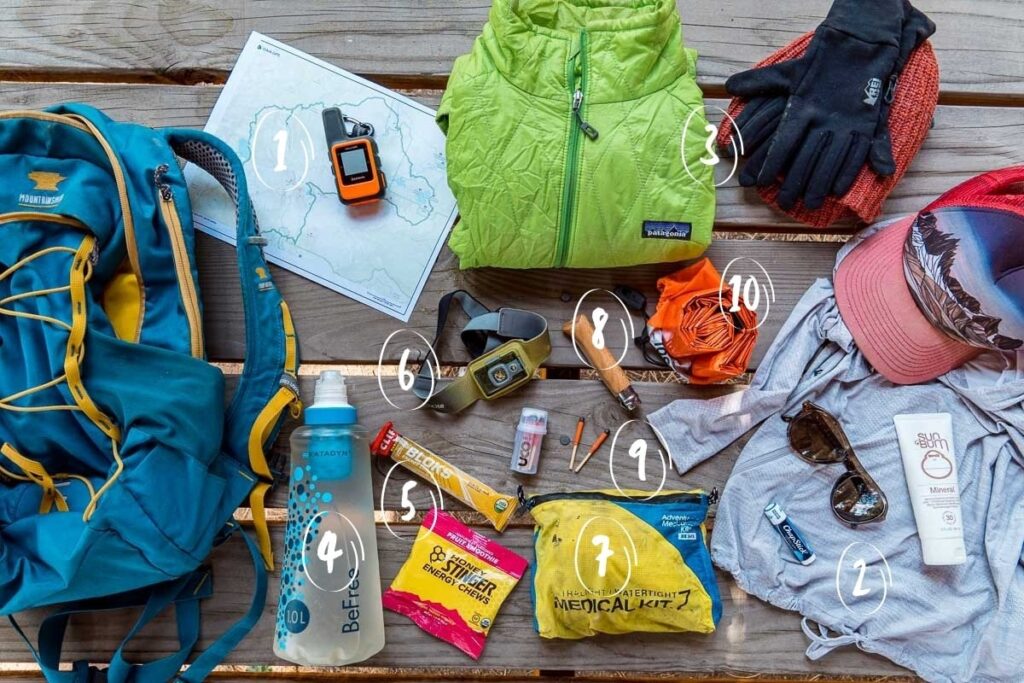
Water-friendly closed-toe shoes. Shoes that are made for walking and getting wet are very helpful while camping. Look for shoes that are sneaker-like but made of waterproof materials that easily drain water.
Sun hats for every family member. Even if the forecast is cloudy, wide-brimmed hats will help prevent sunburn and keep the sun out of everyone’s eyes.
Bug spray and sunblock. If you are camping in an unfamiliar area, it might be helpful to look up what type of insects are common there. This will help you bring the best type of bug protection. Wear sunblock daily because you’ll likely be in the sun more than usual.
Baby wipes. Wet wipes are useful for keeping hands and faces clean.
Portable white noise machine. This machine can help everyone sleep soundly and not get woken up by every forest noise or snorer.
Extra socks. Plan on your kids’ feet getting wet more often than you think.
Head lamps. These hands-free flashlights are ideal for parents and kids to use while exploring at night, walking to the bathroom, or reading in bed.
Fast-drying towels. Towels get used a lot while camping! While it’s tempting to want your plush towels from home, they take a long time to dry. Bring a quick drying towel for each person that will dry lickety split!
Your kids’ favorite sleeping items. Do not forget your child’s favorite stuffed animal or special blanket.
Camping Snacks for Kids
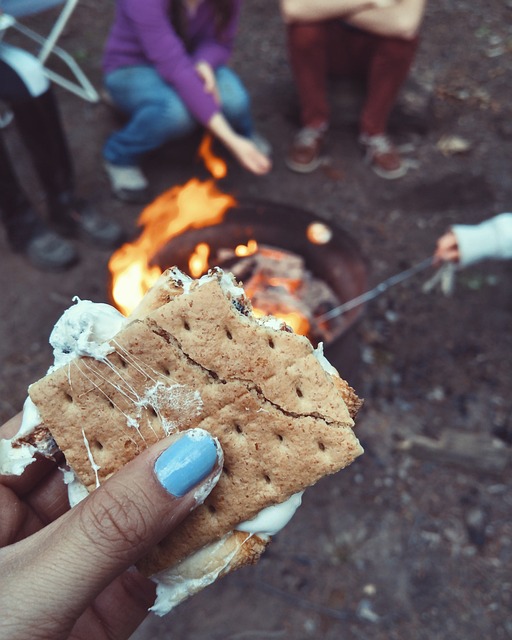
It’s always a good idea to overpack on snacks when camping with kids. You never know when hunger will strike, and you certainly don’t want it ruining a good time. Choose snacks that have beneficial ingredients (like fiber, protein, and whole grains) and are portable and shelf-stable to give family members the energy they need.
Single-serving trail mixes. Trail mix now comes in a plethora of flavors that makes it easy for every family member to choose one they like. Buy pre-portioned packets or make your own snack bags at home to make it super easy to take with you in a pocket or backpack while exploring nature.
CLIF kid Zbar.
These organic energy snack bars are the perfect snack to keep kids going through all your camping adventures. With energizing whole grains from organic oats, kids will love that it’s a soft baked texture in a variety of flavors like Chocolate Chip, Iced Oatmeal Cookie and Chocolate Brownie and you’ll love that they come with no high fructose corn syrup or artificial flavors.

